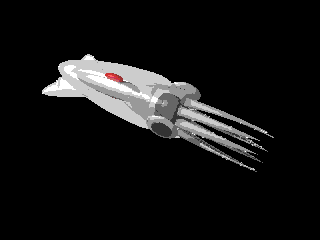When I was seven or eight I would tell people I wanted to be a marine biologist when I grew up. My parents encouraged it to an extent. But I remember one day getting picked up after orchestra practice, crying because I hadn't gotten first chair in the viola section, and explaining to my mother that Samuel Stillman Berry had gone to Stanford and that I would never get in if I wasn't well-rounded. She had no idea that Samuel Stillman Berry had been the leading expert on molluscs (my favorites), but she knew I was being ridiculous. She explained that I couldn't plan ahead that far, that I would be different when I was applying to colleges. Maybe molluscs wouldn't be my favorite things forever. It occurred to me then that maybe 3rd graders didn't always have their lives figured out. Later, I found a term to explain my mistake.

A mollusc
Most people don't have the time or energy to figure out the best solution to a problem, especially when they have other things to worry about; if they need a solution right away, spending that time or energy thinking might even leave them worse off. Instead, they usually choose the first solution that's "good enough." The choice is satisfactory and it suffices, so economists call it "satisficing."
Hair of the Dog
It helps explain why people make "bad" decisions, like prolonging an addiction or treating symptoms rather than attacking a disease's cause. A college student who wakes up with a hangover and cures it with another drink has chosen a satisficing solution; it's not the best thing to do, because waking up will be even harder next weekend. A bureaucrat in Manhattan who throws money at a social problem, like using stimulus money to build housing projects in Harlem, might have made a different choice if she'd had time to think about the consequences. But we can't expect everyone to find the best solutions; the bureaucrat has an angry politician breathing down her neck about the homelessness in his city, and the college student's head hurts too much to plan ahead and ignore the quarter can of Four Loko left over from last night. They make bad decisions, but the solutions do the trick when it's urgent.
The theory of satisficing makes some "bad" decisions not seem so bad, and makes some good plans look foolish. We roll our eyes at the friend who spends too much time figuring out how to split a check or the critic who reads too much into song lyrics. Or the eight year old who plans his life around molluscs. And so now, looking back on the night I had to choose either Peter or Fernando to be my landlord, I think it was a little childish to assume I could plan everything out before Manhattan started to swallow me up. Each time a detail went wrong I had to think up a new, more complicated plan.